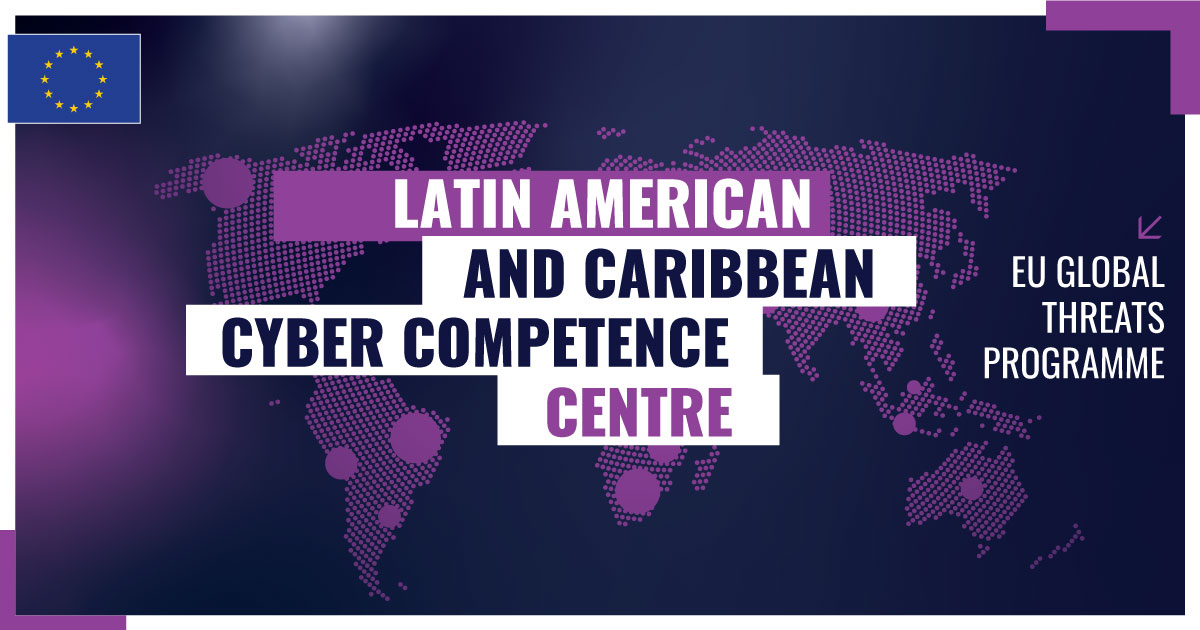
Context
The rapid expansion of information and communication technologies (ICTs) has transformed society across governance, education, health, finance and citizen participation. Cybersecurity is essential for sustainable development, democratic governance and economic resilience, especially in a region with uneven cybersecurity maturity. Recent incidents, including attacks on Costa Rica’s public networks and ongoing threats to financial and energy sectors, underscore the need for coordinated resilience-building.
The EU-LAC Digital Alliance, building on initiatives such as GLACY+, Cyber4Dev, and EL PAcCTO, supports the LAC Cyber Competence Centre as a regional hub for expertise, collaboration, and training. The Centre strengthens legal frameworks, institutions and skilled professionals, promoting alignment with global norms and supporting EU priorities such as the Cyber Diplomacy Toolbox, Digital4Development and Global Gateway investments. This action fosters inclusive, resilient, and secure cyberspace, enhancing local ownership and international cooperation while protecting the region against cyber threats and digital divides.
Overall objective
This project aims to enable citizens of the LAC region to enjoy the digital dividends of an open, free, secure and resilient cyberspace.
Specific objectives
- To increase the cyber resilience and regional cooperation of and with LAC countries.
- To promote an inclusive multi-stakeholder approach and ensuring compliance with the rule of law and good governance principles via the activities of the LAC4 Centre.
- To increase bi-regional cooperation with the EU.
Concrete activities
- National cyber governance seminars, capacity building for decision-makers and tailored training for national and sectoral CSIRTs based on maturity assessments.
- Mentoring and supporting the drafting or updating of national cybersecurity strategies and legislation.
- Engaging critical service providers in joint trainings, awareness-raising sessions and capacity-building initiatives.
- Providing expert advisory reports on CSIRT prioritisation and capacity needs.
- Conducting train-the-trainer programmes for diverse stakeholders, including SMEs, journalists and vulnerable communities, complemented by media outreach campaigns promoting cyber hygiene.
- Organising regional cooperation events such as CyberWeek@LAC4 and Women in CyberTech Camp@LAC4.
- Delivering seminars for foreign affairs officials on cybersecurity.
Expected results
- Strengthened EU-aligned legal and regulatory cybersecurity frameworks across LAC in line with NIS2Enhanced cybersecurity resilience of critical infrastructure sectors through public–private collaboration and EU-standard security integration.
- Enhanced national and sectoral cyber incident response teams (CSIRTs) capabilities, across the LAC region to adequately prevent, detect and respond to evolving cyber threats.
- Created a culture of cybersecurity awareness across all levels of society in the LAC region through awareness raising, inclusive training and workforce development.
Expected achievements
- LAC4 Centre supported or held over 12 workshops, exercises, seminars and conferences, to increase regional cooperation of and with LAC countries.
- Expert advisory enabled at least 2 countries to adopt internationally accepted cybersecurity standards aligned with EU norms.
- Delivered over 15 training activities targeting energy, telecoms, finance, transport and water sectors, promoting public-private collaboration and consistent security standards.
- Over 500 practitioners benefited from tailored training, enhancing prevention, detection and response to evolving cyber threats.
- Conducted over 5 awareness-raising and workforce development initiatives, engaging stakeholders across governments, SMEs, academia and civil society.
- Project duration
- 1 Sep 2025 - 1 Dec 2026
- Project locations
- Antigua and BarbudaArgentinaArubaBahamasBarbadosBelizeBoliviaBrazilChileColombiaCosta RicaDominicaEcuadorEl SalvadorGrenadaGuatemalaGuyanaHaitiHondurasJamaicaMexicoPanamaParaguayPeruSaint BarthélemySaint Kitts and NevisSaint LuciaSaint Vincent and the GrenadinesSurinameTrinidad and TobagoUruguay
- Overall budget
- €1 400 000
- Threat area
- Critical Infrastructure Protection
